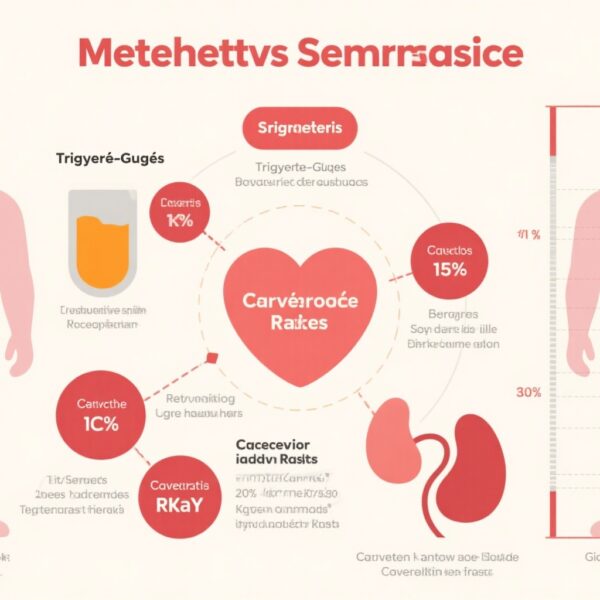Highlights
- The JCOG1409 MONET trial is the first large-scale, multicentre, randomized controlled study comparing thoracoscopic versus open oesophagectomy with overall survival as the primary endpoint in thoracic oesophageal cancer.
- Thoracoscopic oesophagectomy demonstrated non-inferior 3-year overall survival compared to open oesophagectomy, with a survival rate of 82.0% versus 70.9%, respectively.
- Perioperative morbidity and severe complications were comparable between both surgical approaches, though pneumonia was less frequent in the thoracoscopic group.
- The trial supports thoracoscopic oesophagectomy as a standard surgical approach for selected patients with resectable thoracic oesophageal cancer in Japan.
Study Background and Disease Burden
Oesophageal cancer remains a significant global health challenge, characterized by high mortality due to its often late presentation and aggressive nature. Surgical resection is a cornerstone curative treatment for localized disease, with oesophagectomy being the primary radical procedure. Traditionally, open transthoracic oesophagectomy has been the standard approach but is associated with considerable surgical trauma and morbidity.
Minimally invasive techniques such as thoracoscopic oesophagectomy have gained traction worldwide due to the potential advantages of reduced perioperative complications, faster recovery, and improved quality of life. However, robust, large-scale evidence directly comparing long-term survival outcomes between thoracoscopic and open oesophagectomy has been limited, leaving the question of oncological equivalence unresolved until now.
Study Design
The JCOG1409 MONET trial is a multicentre, open-label, randomized, controlled, phase 3 non-inferiority study conducted across 31 hospitals in Japan. Eligible patients were aged 20–80 years with histologically confirmed squamous cell carcinoma, adenosquamous carcinoma, or basaloid squamous cell carcinoma of the thoracic oesophagus. Inclusion criteria included good performance status (ECOG 0 or 1) and clinical stages I to III (excluding T4), with no prior treatment other than endoscopic resection for superficial lesions or preoperative chemotherapy.
A total of 300 patients were randomized equally to receive either right open transthoracic oesophagectomy or right thoracoscopic oesophagectomy, both coupled with at least D2 lymphadenectomy, ensuring comprehensive nodal clearance.
The primary endpoint was investigator-assessed overall survival in the intention-to-treat population. Non-inferiority was defined by a 9% margin for 3-year overall survival (HR 1.44). Two interim analyses were pre-planned, with termination criteria based on demonstration of non-inferiority or superiority in overall survival for thoracoscopic surgery.
Key Findings
Among the 300 randomized patients (82% male, median age 68 years), 148 underwent open oesophagectomy and all 150 allocated to thoracoscopic oesophagectomy received the planned intervention. At the first interim analysis (median follow-up 1.6 years), non-inferiority was not confirmed due to wide confidence intervals and immature survival data.
However, the second interim analysis at a median follow-up of 2.6 years revealed:
– 3-year overall survival rates were 82.0% (95% CI 73.8–87.8) for thoracoscopic and 70.9% (95% CI 61.6–78.4) for open oesophagectomy.
– Hazard ratio for death with thoracoscopic surgery was 0.64 (98.8% CI 0.34–1.21), achieving statistical non-inferiority (p_non-inferiority = 0.000726).
Safety profiles were similar:
– Intraoperative complications (grade ≥3) occurred in 1% in thoracoscopic group vs 1% in open group, all due to bleeding.
– Postoperative complications before discharge (grade ≥3) were comparable (42% vs 44%).
– Grade ≥3 pneumonia was lower in the thoracoscopic group (8% vs 12%).
– Grade 3 anastomotic leakages were higher in the thoracoscopic group (11% vs 5%).
– Treatment-related deaths were 4 in thoracoscopic and 2 in open surgery groups.
Following these results, the Data and Safety Monitoring Committee recommended trial termination.
Expert Commentary
The JCOG1409 MONET trial offers high-quality evidence supporting the equivalence of thoracoscopic oesophagectomy to traditional open surgery in oncological efficacy for thoracic esophageal cancer. The superior numerical survival rate and similar complication profiles endorse minimally invasive surgery as a viable first-line approach in experienced centers.
Some caution remains regarding the slightly increased rate of severe anastomotic leakage in the minimally invasive group, highlighting the technical demands of thoracoscopic oesophagectomy and the importance of surgical expertise. Additionally, although the trial was performed within a Japanese population with squamous cell predominant histology and standardized perioperative care, generalizability to Western populations and different subtypes warrants further study.
This trial addresses a critical gap in evidence and may influence practice guidelines, potentially shifting treatment paradigms toward minimally invasive techniques.
Conclusion
The JCOG1409 MONET phase 3 trial conclusively demonstrates that thoracoscopic oesophagectomy is non-inferior to open oesophagectomy regarding overall survival in patients with resectable thoracic oesophageal cancer. The safety profile and postoperative complication rates between both techniques are comparable, with potential perioperative benefits for thoracoscopic surgery.
This landmark study supports thoracoscopic oesophagectomy as a standard surgical approach in suitable patients, promoting minimally invasive surgery adoption to improve patient outcomes without compromising oncological control.
Further research should evaluate long-term quality of life, functional outcomes, and applicability in diverse patient populations and tumor histologies.
Funding and Trial Registration
This research was funded by the Japan Agency for Medical Research and Development and the National Cancer Center Research and Development Fund. The clinical trial is registered with UMIN Clinical Trials Registry (UMIN000017628).
References
Takeuchi H, Machida R, Ando M, et al. Thoracoscopic versus open oesophagectomy for patients with oesophageal cancer (JCOG1409 MONET): a multicentre, open-label, randomised, controlled, phase 3, non-inferiority trial. Lancet Gastroenterol Hepatol. 2025 Oct 13:S2468-1253(25)00207-9. doi:10.1016/S2468-1253(25)00207-9. Epub ahead of print. PMID: 41101325.
Additional pertinent literature may be consulted through PubMed and clinical guideline resources for oesophageal cancer management to contextualize findings within current standards of care.

